
Pick your favourite furniture design of 2023!
A Frank Lloyd Wright reissue faces off against a chair made from discarded musical instruments as Dezeen invites readers to pick their favourite furniture design of the year as part of our review of 2023.
Our shortlist brings together 10 of the most read, most newsworthy and most interesting projects of the year for readers to choose from, with the winner set to be revealed on 27 December.
Read on for the highlights, then vote here or by using the form at the bottom of the article.
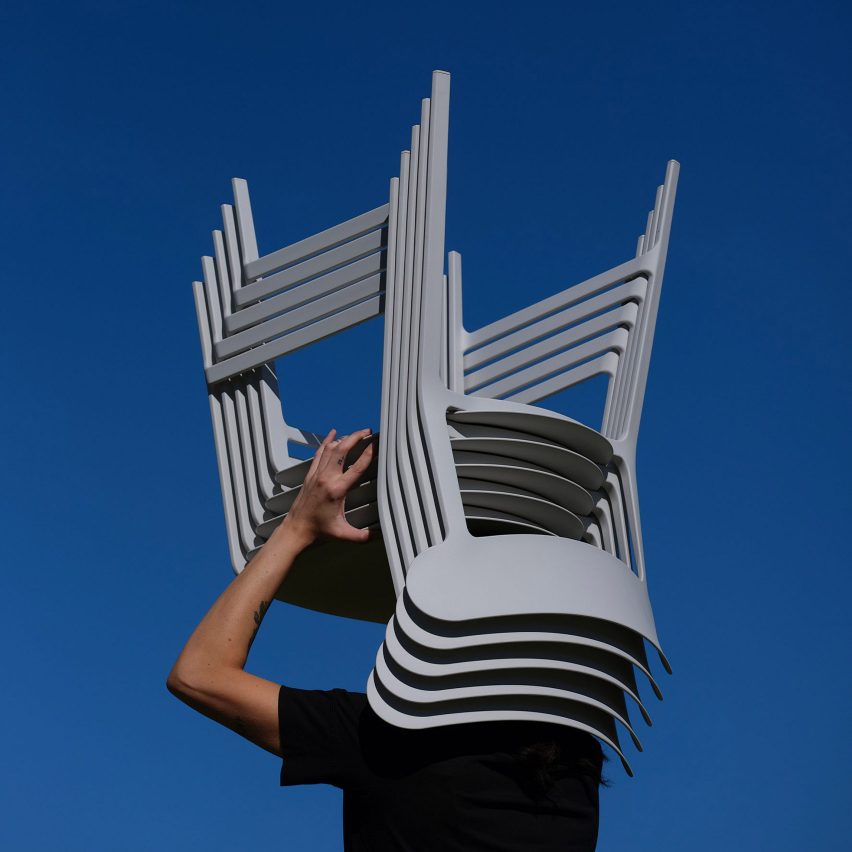
Lightly chair by Formway for Noho
Crowned furniture design of the year at the 2023 Dezeen Awards, the Lightly chair has a seat made from post-consumer recycled plastic and a frame made from EcoPAXX, with 70 per cent bioplastic content derived from the castor bean plant.
The material can be collected, dismantled and returned for recycling, or fed into a pyrolysis that is currently at a pilot scale, Noho said.
Up to 10 of the plastic chairs can be stacked on top of each other, with each weighing just 2.75 kilograms to ensure efficient transportation. In total, 1,650 Lightly chairs can fit into a single shipping container.
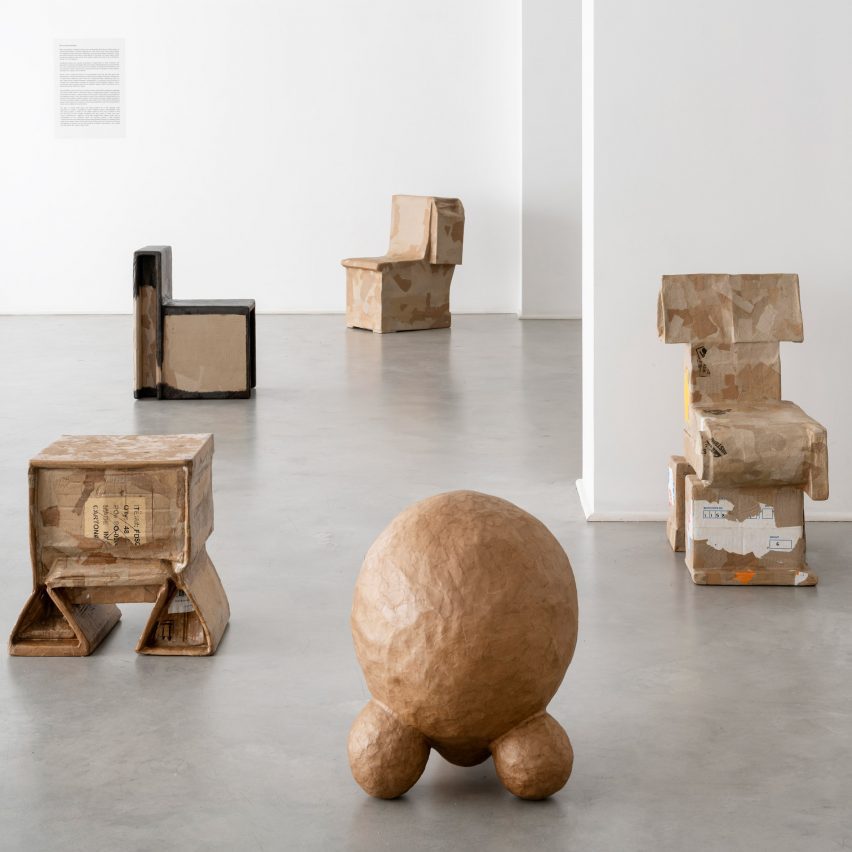
British designer Max Lamb explored the potential of cardboard as a structural material with this collection of furniture and homeware that includes everything from a vase to a sofa and a six-person dining table.
All 33 pieces are made entirely using cardboard waste from his own studio, held together with a homemade glue consisting of flour and water. As a result, Lamb says the designs are entirely plant-based and infinitely repairable.
"You just need some extra cardboard boxes and some flour out of your baking cupboard," he told Dezeen. "Mix a bit of flour and water and you can paste on a little patch."
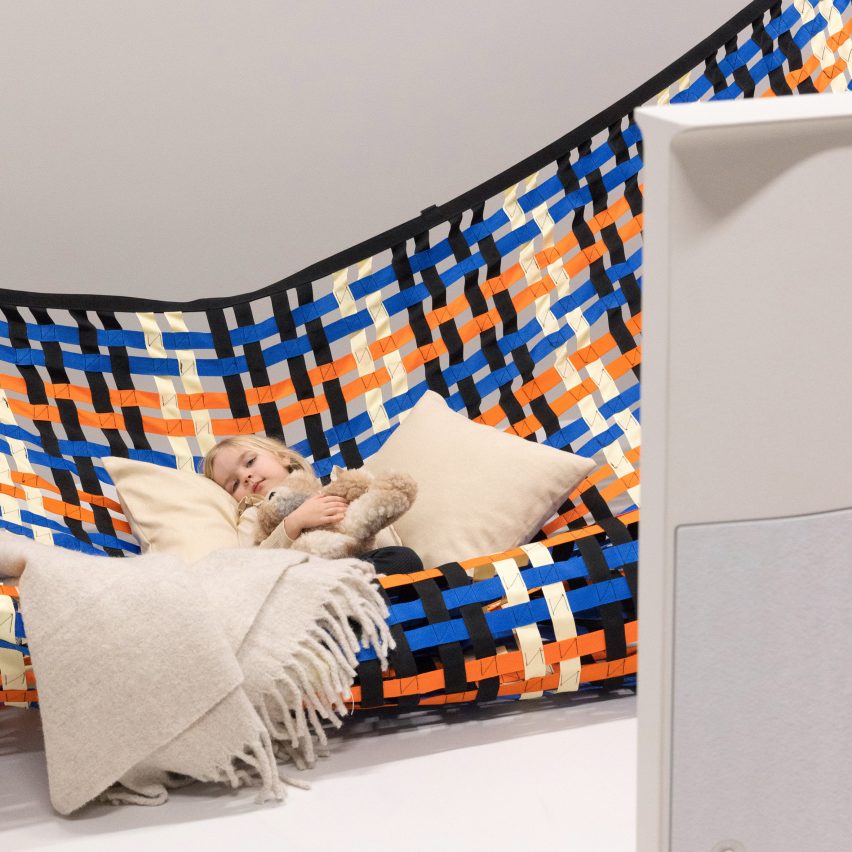
Shift sofa hammock by Form Us With Love for Samsung
At this year's Stockholm Design Week, local studio Form Us With Love presented a prototype for a sofa that can be easily moved between rooms and packed away when not in use.
Instead of a bulky frame topped with layers of padding and upholstery, the couch resembles a large woven hammock that can be hung in different configurations to accommodate varying groups and activities.
"The sofa forms its shape around you, not the other way around," said Form Us With Love design manager Karin Blomberg.
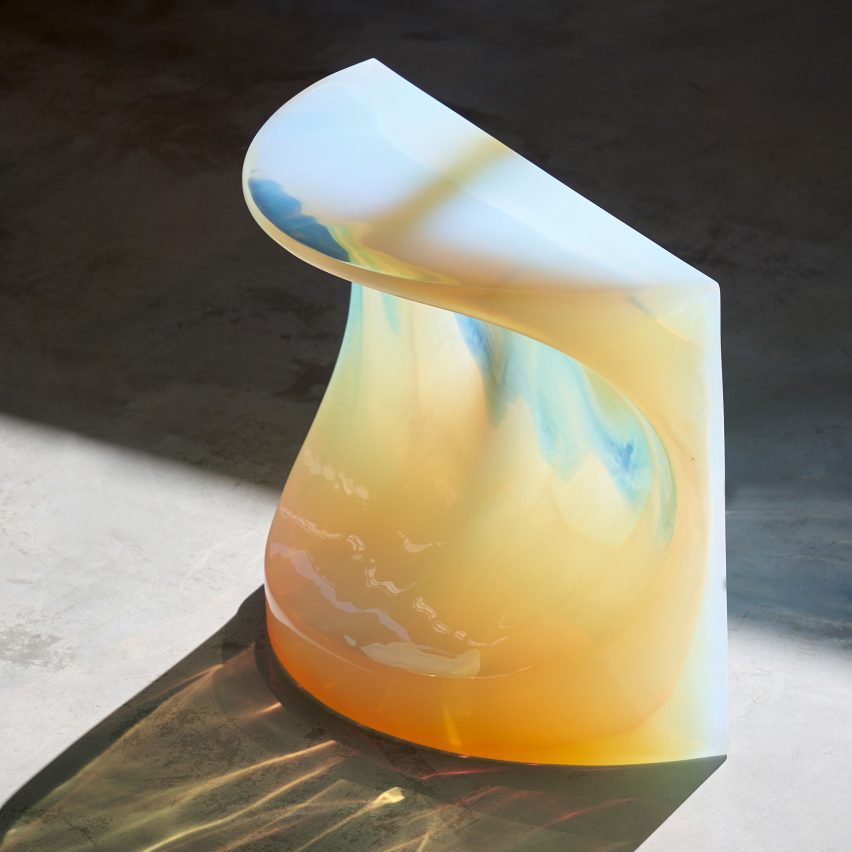
Poikilos by Objects of Common Interest
This furniture collection was made using a "secret recipe" for iridescent resin, bequeathed to design studio Objects of Common Interest by octogenarian craftsman Ovidiu Colea upon his retirement.
The products are an exploration of the material's unique aesthetic qualities, taking on a milky white colour in the chunkier objects while thinner pieces such as the concave Afairesi console table (above) appear almost transparent in parts.
Presented at Nilafur Depot in April, the Poikilos collection was lauded as one of the highlights of Milan design week,
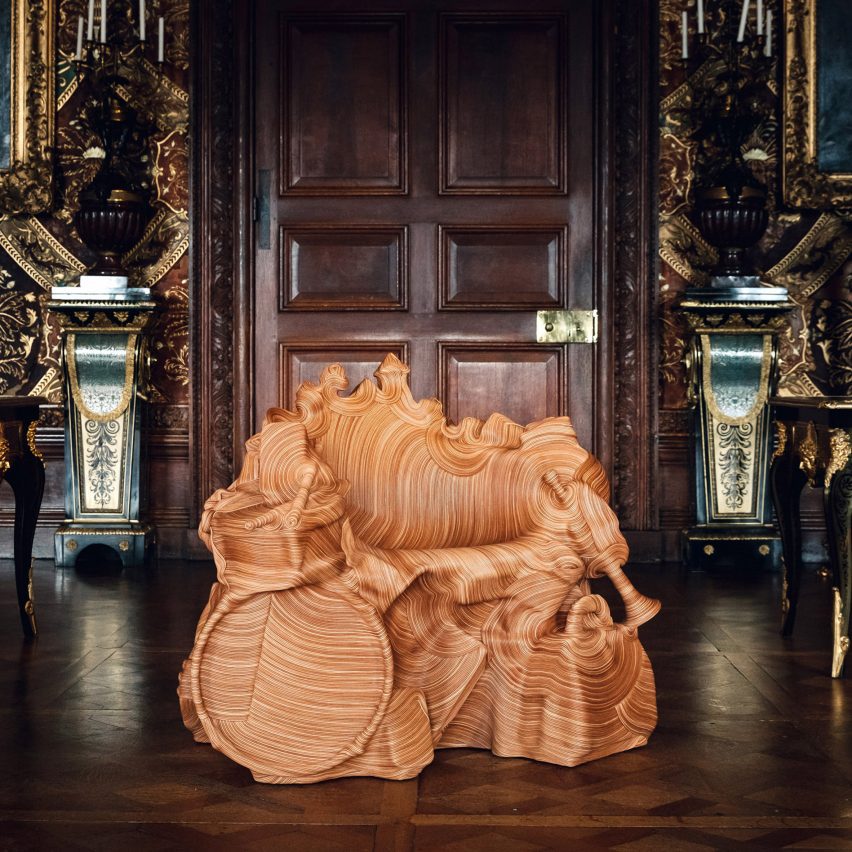
Salvage Chair by Jay Sae Jung Oh
Two drums, a French horn and an electric guitar are among the discarded instruments that form the base of this armchair by Korean designer Jay Sae Jung Oh.
Created for the music room at Chatsworth House as part of the Mirror Mirror exhibition, the assemblage was hand-wrapped in lengths of leather cord, creating a hypnotic ripple pattern across its surface.
"Collecting objects is much easier than people imagine," Oh told Dezeen. "The ease of this process highlights just how much stuff we throw away in our daily lives."
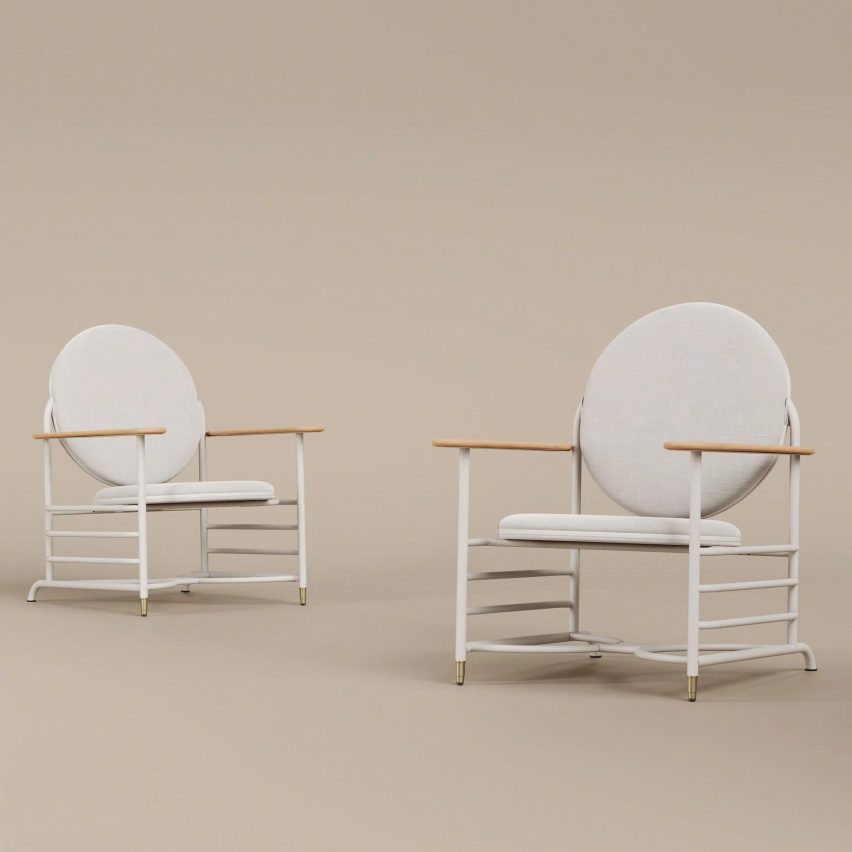
Racine by Frank Lloyd Wright for Steelcase
This year saw American furniture-maker Steelcase reissue a series of archival designs created by architect Frank Lloyd Wright in 1939 for the SC Johnson Administration building in Racine, Wisconsin.
In collaboration with the Frank Lloyd Wright Foundation, the desks and office chairs were sized up to fit modern body proportions, as Steelcase found that only 20 per cent of American men would have space for their legs in the original design.
Although the overall structure of the designs remained faithful to the original, the company made a few tweaks to modernise their functionality, with the desk's spring-operated drawers switched to magnets and the iconic three-legged chairs given an additional leg due to stability concerns.

Norwegian brand Vestre claims that this bench is the world's first piece of furniture made from fossil-free steel.
It is forged by Swedish manufacturer SSAB in a converted blast furnace that is heated using green hydrogen instead of coal. As a result, the process emits no carbon dioxide.
However, every gram of material still has some carbon cost due to emissions from mining and transport, so designer Emma Olbers was careful to use as little material as possible in the final design while still creating a sturdy piece of street furniture.
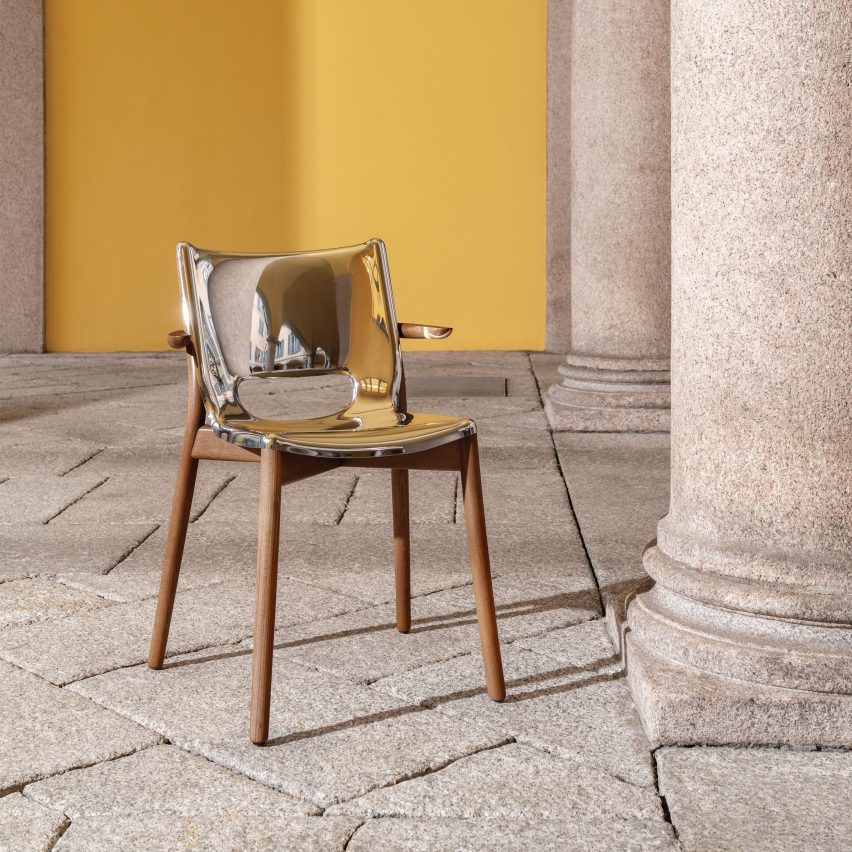
Poêle by Philippe Starck for Alessi
Following the controversial Juicy Salif lemon squeezer of the 1990s, Philippe Starck and Alessi joined forces for another landmark collaboration as the Italian homeware brand made its move into furniture.
The Poêle collection features a coat stand, a chair and two stools with stainless-steel seats formed using the same cold-press moulding technique that Alessi uses to make its kitchen pans.
"I have been trying to make a chair with Philippe Starck for around 20 years now and, finally, we did it," Alberto Alessi said.
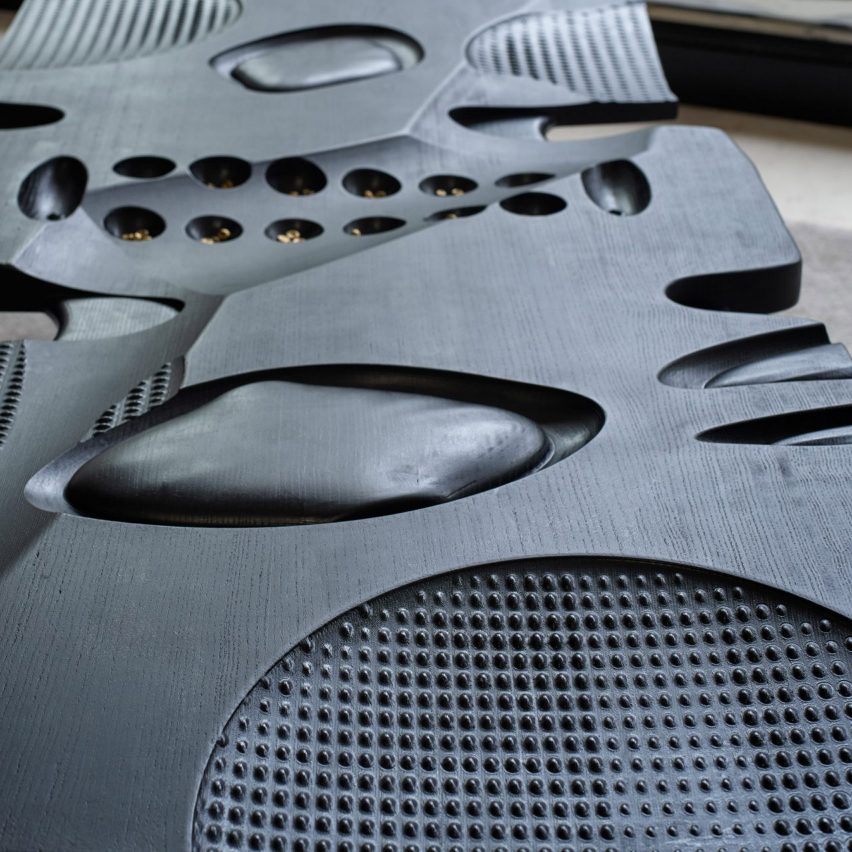
Interplay bench by Giles Nartey
Not all of the patterns carved into the surface of this communal bench by designer Giles Nartey are simple decorations.
Hollowed out of the centre of the wooden seat are neat rows of holes or "houses", used for playing the West African strategy game of Oware.
Presented at the London Design Festival, the design is a gamified version of the traditional bench-beds created by the Senufo people of Mali and the Ivory Coast.
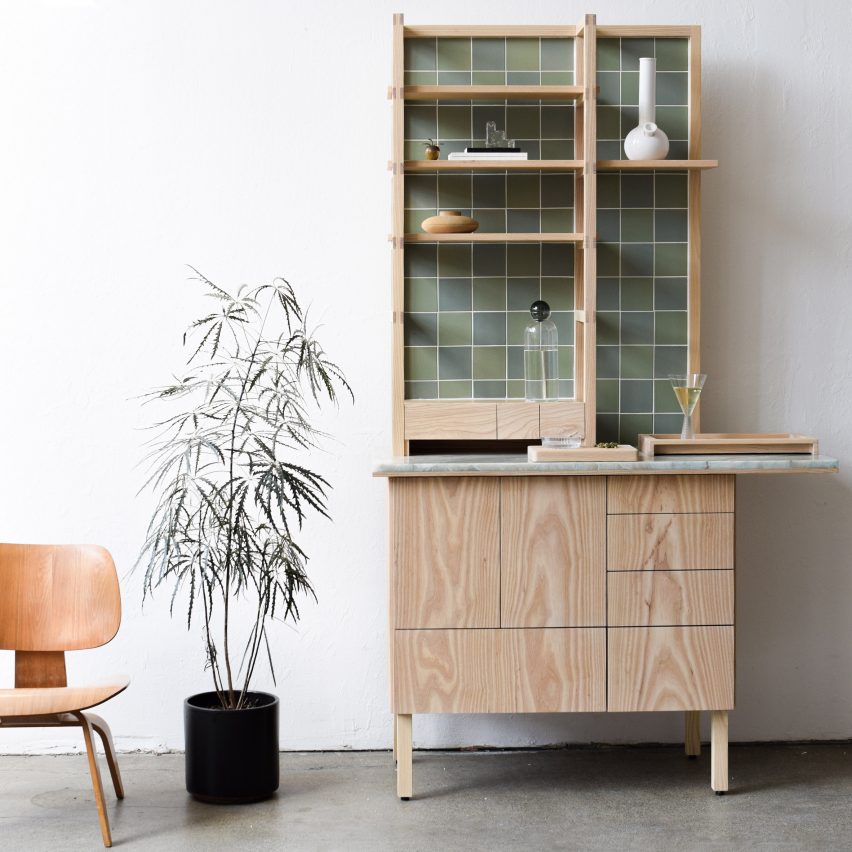
One of the most-read furniture stories featured on Dezeen this year was this purpose-built cannabis cabinet by San Francisco studio Alter Interiors, complete with a dedicated bong shelf and a pull-out rolling tray.
The design is an updated take on the traditional liquor cabinets that have been used to both conceal and display alcohol for centuries.
"Humans have always found occasion for and made a spectacle of their elixirs," said designers Jenny Magdol and Steffie Oehm. "And we have always designed spaces and furnishings to ritualise those elixirs."

This article is part of Dezeen's roundup of the biggest and best news and projects in architecture, design, interior design and technology from 2023.